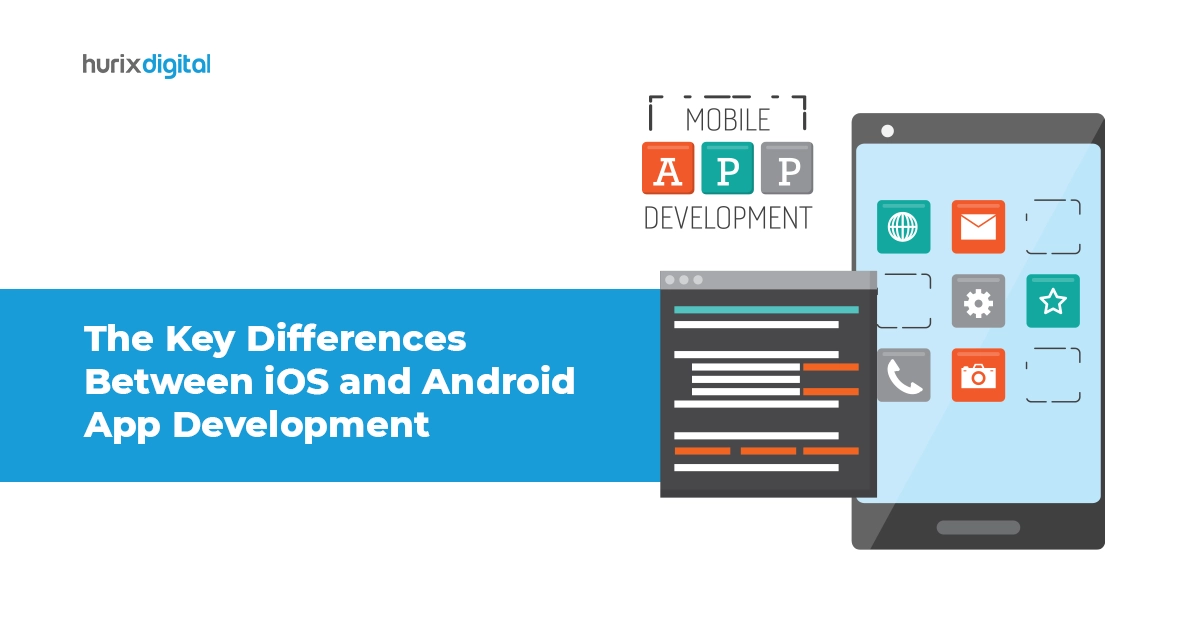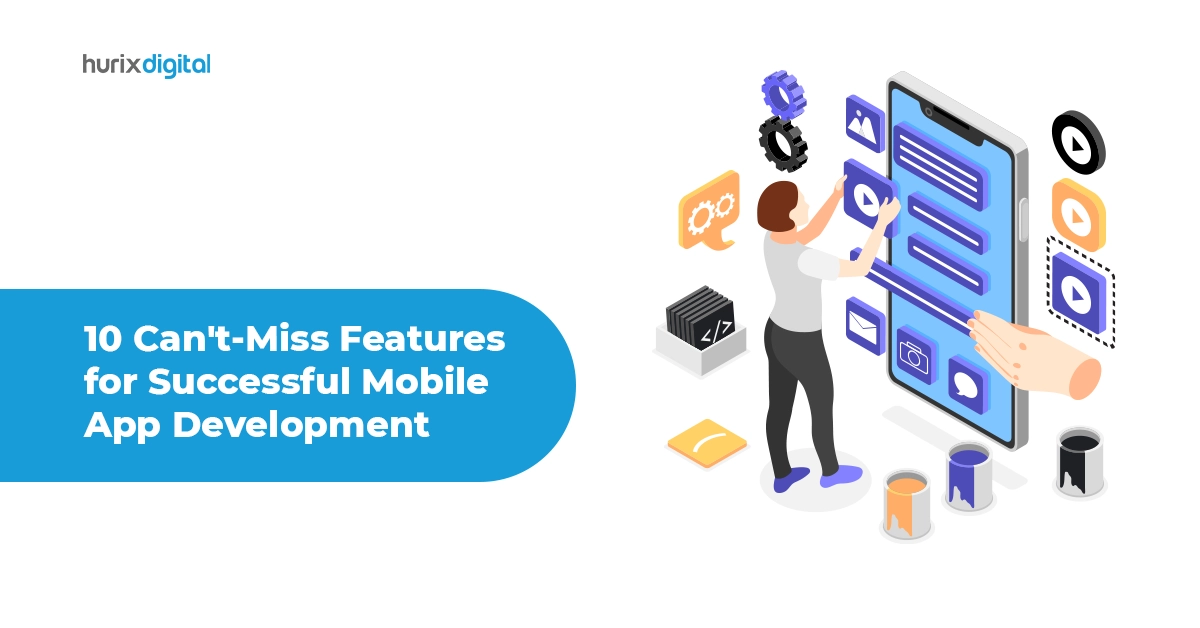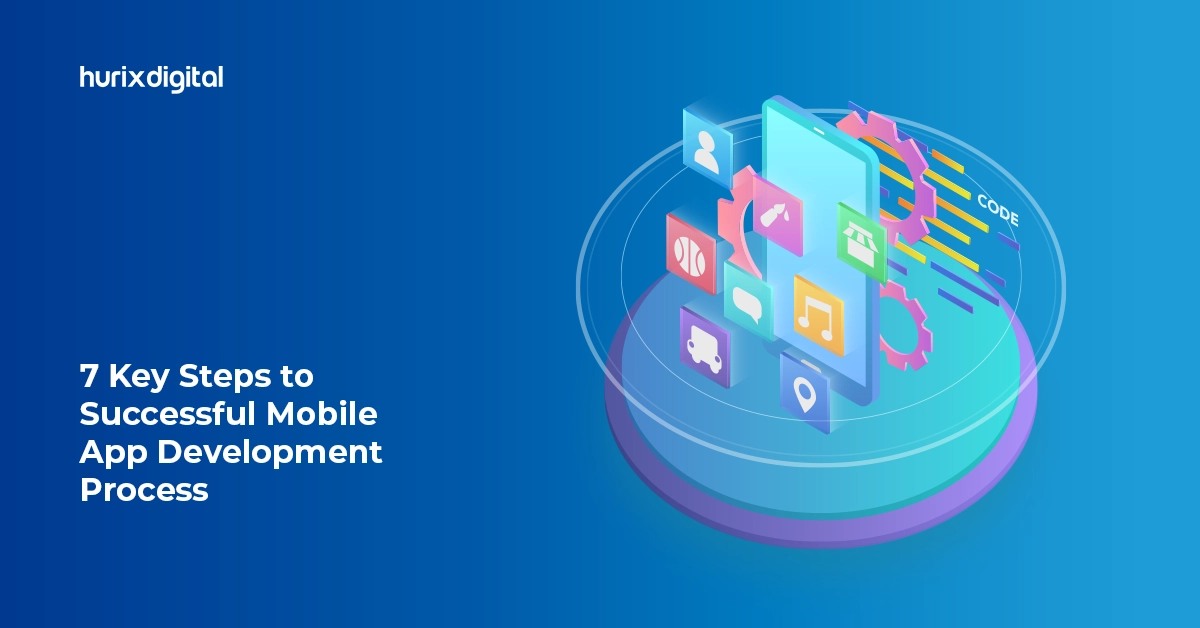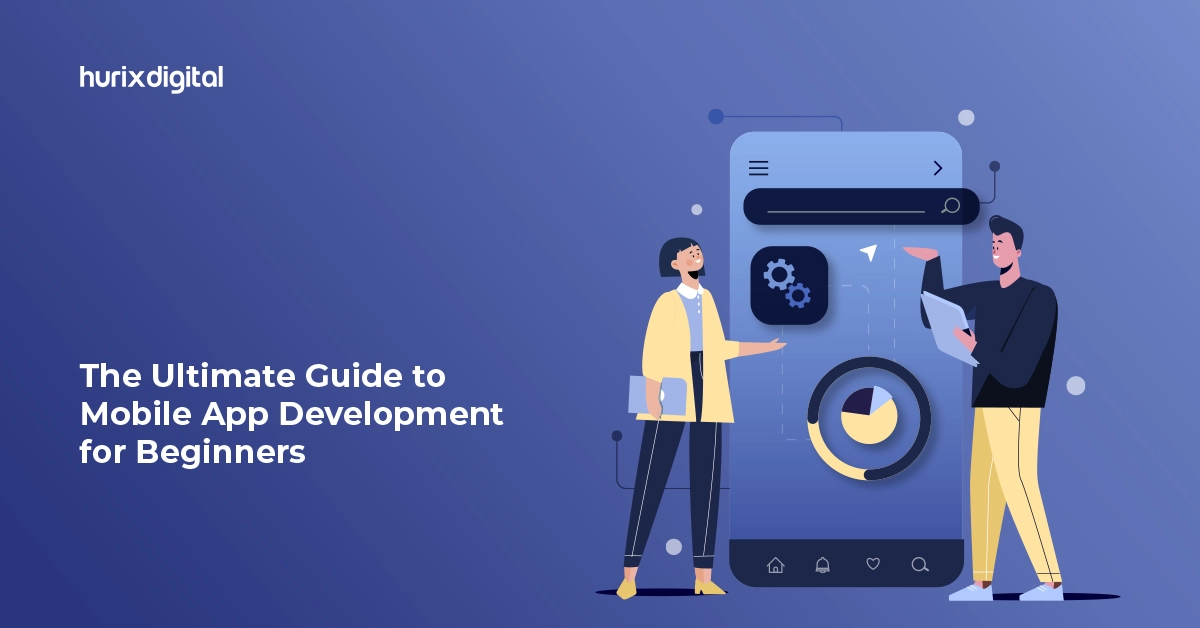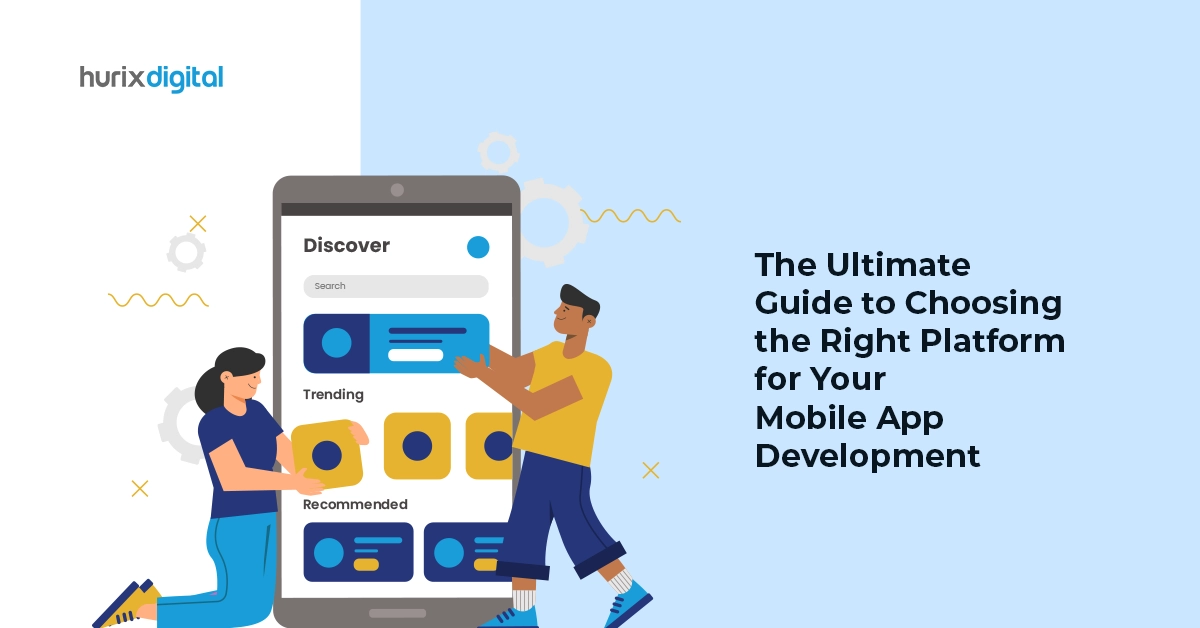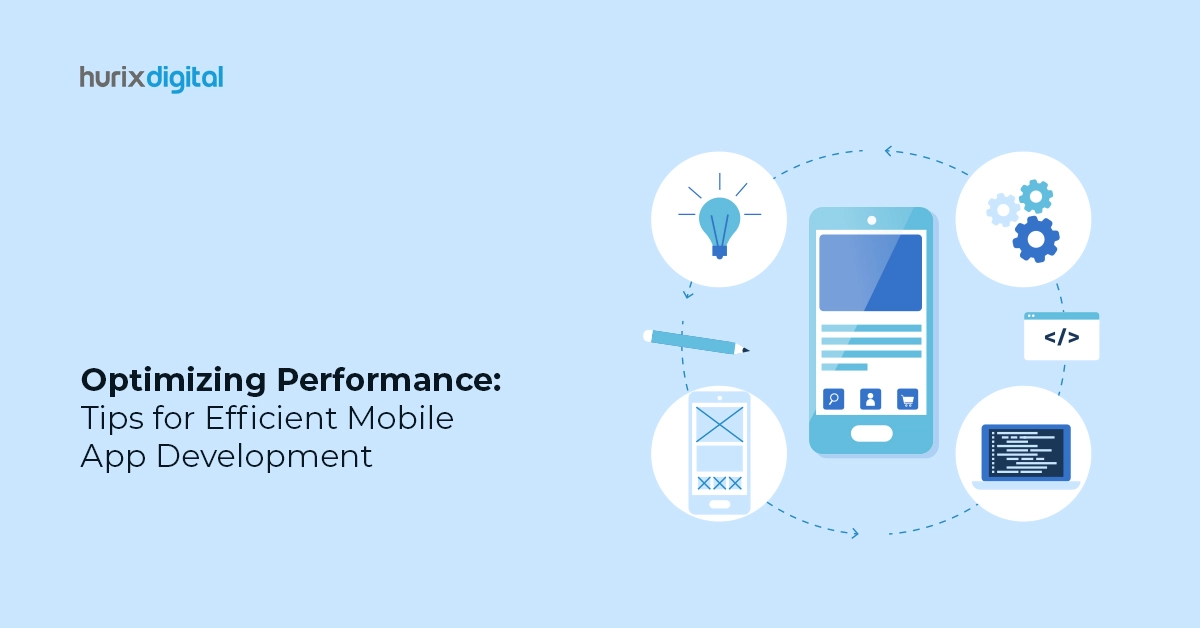Summary
This blog explores the distinctions between iOS and Android app development, covering programming languages, IDEs, UI design, distribution, device fragmentation, performance, and developer costs.
In today’s mobile world, iOS and Android are the two dominant operating systems powering smartphones and tablets. As of Q3 2023, Android holds a global market share of about 81%, while iOS has around 16% market share. This duopoly means that most developers building mobile apps need to decide whether to build for iOS, Android, or both.
Table of Contents:
1. Programming Languages
2. Integrated Development Environments (IDEs)
3. User Interface Design
4. Distribution and Monetization
5. Device Fragmentation
6. Performance
7. Developer Cost
8. Conclusion
While the core functionality of an app may be the same across platforms, there are several key differences between iOS and Android app development that developers must consider. This article will examine the main distinctions between the two platforms in terms of programming languages, IDEs, UI design, app distribution and monetization, and more. Understanding these key differences is essential for developers looking to build successful apps for iOS and/or Android.
Also read, Why Hurix Custom Mobile App Development is Worth the Investment: 5 Benefits You Can’t Ignore
Programming Languages
The most fundamental difference between iOS and Android app development is the programming languages used. iOS apps are most commonly built using Apple’s Swift and, to a lesser extent, Objective-C programming languages. The vast majority of Android apps are built using Java and, increasingly, Kotlin – created by Google specifically as a Java alternative for Android.
This core difference in languages means developers looking to build iOS apps need to have proficiency in Apple’s ecosystems of Swift and Objective-C. Meanwhile, Android app developers need experience with Java or Kotlin. Learning two distinctly different programming languages is a significant time and resource investment. This is a major reason many individual developers choose to specialize in iOS or Android app development specifically.
However, larger development firms offering both iOS and Android app development services will often have distinct teams with expertise in either the Apple languages or Android languages. This allows them to provide native iOS and Android development capabilities.
Read more, 6 Expert Tips for Creating a Unique and Successful Mobile App
Integrated Development Environments (IDEs)
Beyond programming languages, iOS and Android app development also relies on completely different integrated development environments (IDEs). Xcode is the exclusive and required IDE for iOS app development, while Android developers use Android Studio.
Both Xcode and Android Studio provide robust tools for building mobile apps, including UI builders, emulators for testing, debug and performance monitoring capabilities, and more. However, Xcode only runs on Apple’s macOS, while Android Studio is cross-platform and runs on Windows, macOS, and Linux.
The requirement of owning Apple hardware and learning Xcode uniquely for iOS development adds friction for developers accustomed to other platforms. On the other hand, Android Studio will feel familiar to Java developers as it takes inspiration from IntelliJ IDEA. The specifics of each IDE also take time for developers to learn for maximum efficiency.
User Interface Design
User experience and user interface design are another major differentiation between iOS and Android app development. Apple’s Human Interface Guidelines provide strict recommendations for the look, feel, and flow of iOS apps to provide familiarity. Google’s Material Design guidelines dictate significantly different UX/UI patterns for Android.
For example, Apple favors minimalist, flat interfaces with transparent blur effects and designed emphasis on content. Android provides more freedom for flashier design with bold colors, shadows, animations, and layered elements.
Developers must understand these core design principles to build apps aligned to users’ expectations. An iOS app ported to Android without adjustments will feel foreign to Android users. The same is true vice versa.
Distribution and Monetization
iOS apps can only be distributed through Apple’s centralized, tightly controlled App Store. Google Play is the primary store for Android apps, but developers can also publish certain apps on third-party stores like Amazon.
The iOS App Store review process is notoriously strict compared to Google Play’s more open process. Due to the single distribution channel, iOS developers must ensure full compliance with App Store guidelines.
Additionally, the iOS App Store generates significantly higher average revenue per app than Google Play and Android alternatives. iOS users tend to be more willing to pay for apps themselves rather than rely on in-app purchases and ads.
These distribution and monetization considerations impact developers’ ability to deliver their apps to users and build sustainable businesses. iOS development means acquiescing to Apple’s full control, while Android offers more flexibility but generates lower sales.
Device Fragmentation
Supporting the incredible device diversity in the Android ecosystem poses further challenges for Android development. iOS apps only need to account for a handful of current iPhone and iPad models powered by essentially just two operating system versions.
Android apps must account for thousands of distinct smartphones and tablets with different screen sizes, processors, specs, and more. Google also does not have full control over software updates, so Android apps must be built to support several OS versions.
This fragmentation means Android developers have a much heavier burden around cross-device compatibility and providing the proper experience regardless of Android device. iOS developers can target the latest APIs and power consistently.
Read more, Different Types of Mobile Applications: Native, Hybrid & Web Apps
Performance
While Android phones have mostly closed the performance gap in benchmarks, iOS apps still tend to feel faster and smoother due to Apple’s tight integration of software and hardware. The consistency of iOS hardware allows for reliable optimization to achieve slick 60fps performance for animations and smoothly loading content.
Android’s vast device differences make consistent, lag-free performance more challenging outside of the highest-end devices. Extensive performance testing is critical for Android to account for underpowered hardware many users may still have.
Developer Cost
Due to the additional complexity of supporting virtually unlimited form factors and variations, Android app development also tends to be more expensive than iOS. Developers report Android projects taking up to 30% longer than comparable iOS apps.
Apple’s extensive curation of iOS and only allowing for native Objective-C/Swift also makes iOS apps less risky from a security standpoint. The runtime program analysis and sandboxing of iOS erect substantial security barriers. Android’s Java basis lacks the same protections, increasing the risk of malware.
Conclusion
While an app’s end-user functionality may be identical across iOS and Android, the fundamental approaches to native development differ greatly between the platforms. From programming languages to UI conventions to distribution channels, developers must weigh considerable differences in building for Google Android versus Apple iOS.
Understanding the key differentiators around languages, devices, design principles, tools, and performance is crucial for tailoring apps specifically for iOS or Android users and their expectations. With smart planning, however, developers can maximize quality and efficiency to build native iOS and Android apps that feel right at home on their target platforms.
Hurix Digital offers expert assistance with native app development for both platforms. By leveraging Hurix Digital’s seasoned iOS and Android developers, companies can build elegant, high-performing apps tailored to each operating system’s strengths.
Read more, The Role of AI and Machine Learning in Modern Mobile App Development Solutions
Contact us for more info!


